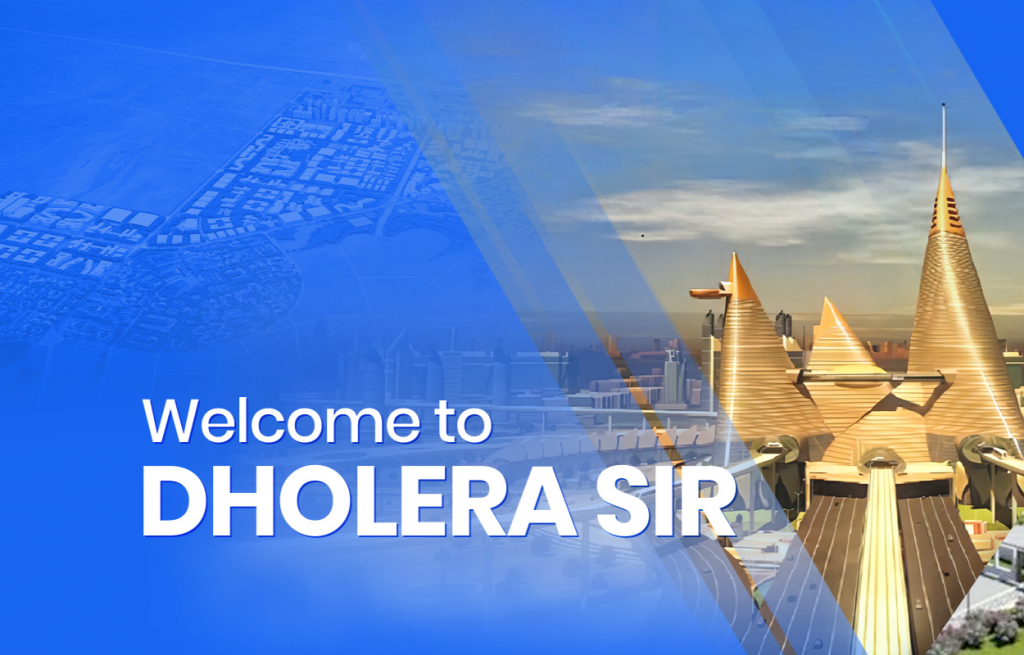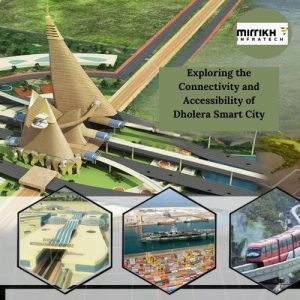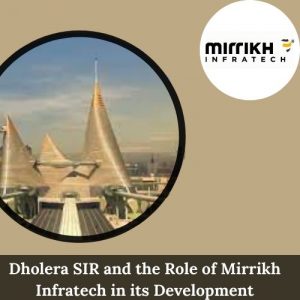India’s digital economy is rapidly evolving, driven by ambitious projects and Dholera smart city initiatives to transform urban landscapes into hubs of innovation and connectivity. Among these initiatives, Dholera Special Investment Region (SIR) stands out as a pioneering example of how urban planning and technology can converge to propel economic growth and digital transformation. As one of the first smart cities under the Delhi-Mumbai Industrial Corridor (DMIC) project, Dholera is poised to significantly contribute to India’s digital economy. This blog explores the various facets of Dholera’s development and its impact on the nation’s digital landscape.
Dholera: A Visionary Smart City
Historical Background and Vision
Dholera SIR is part of the DMIC, a major infrastructure project aimed at creating a series of industrial zones across six states in India. The vision for Dholera is to create a world-class city with state-of-the-art infrastructure, sustainable living conditions, and a robust digital backbone. The project aims to attract investment, generate employment, and foster technological innovation, thereby contributing to the overall growth of the digital economy.
Infrastructure and Technological Framework
Dholera‘s infrastructure is designed to support a wide range of industries and services, with a strong emphasis on digital connectivity. The city’s planning incorporates advanced Information and Communication Technology (ICT) systems to facilitate efficient governance, smart utilities, and seamless connectivity. Key infrastructure elements include:
- Integrated ICT Framework: Dholera’s digital infrastructure integrates various ICT components to ensure real-time data sharing and management. This includes smart grids, intelligent traffic management systems, and comprehensive surveillance systems.
- High-Speed Connectivity: The city is equipped with high-speed internet and extensive fiber optic networks, ensuring uninterrupted connectivity for businesses and residents. This connectivity is crucial for the functioning of smart utilities and the proliferation of digital services.
- Smart Utilities: Dholera’s utility services, such as electricity, water, and waste management, are managed through smart systems that utilize data analytics and IoT (Internet of Things) devices to enhance efficiency and sustainability.
- Digital Governance: E-governance platforms in Dholera enable efficient and transparent service delivery. Residents and businesses can access various government services online, reducing bureaucratic hurdles and fostering a business-friendly environment.
Contribution to the Digital Economy
Attracting Tech Investments
Dholera’s advanced infrastructure and business-friendly policies make it an attractive destination for tech companies and startups. The city offers various incentives, including tax breaks, simplified regulatory processes, and access to world-class facilities, encouraging both domestic and international tech firms to set up operations. This influx of investment not only boosts the local economy but also contributes to the national digital economy by fostering innovation and creating high-tech jobs.
Innovation and Research Hubs
The establishment of innovation and research hubs within Dholera is a significant driver of digital economic growth. These hubs provide a collaborative environment for academia, industry, and startups to work on cutting-edge technologies such as artificial intelligence, blockchain, and robotics. The synergy between these entities accelerates the development of new products and services, which can be scaled and exported globally, enhancing India’s position in the global digital market.
Skill Development and Employment
Dholera’s development includes initiatives aimed at enhancing the skills of the local workforce to meet the demands of the digital economy. Training centers and educational institutions within the city focus on imparting skills in areas such as software development, data science, and cyber security. By creating a skilled workforce, Dholera not only addresses the employment needs of its residents but also provides a pool of talent for tech companies across the country.
Boosting E-commerce and Digital Services
The seamless connectivity and advanced infrastructure in Dholera facilitate the growth of e-commerce and digital services. With efficient logistics and smart supply chain management systems, businesses in Dholera can operate more effectively, reaching customers across India and beyond. The rise of e-commerce platforms contributes to the digital economy by increasing consumer access to a wide range of products and services, driving digital transactions, and promoting financial inclusion.
Sustainable Development and the Digital Economy
Smart and Sustainable Living
Dholera’s commitment to sustainability is integral to its contribution to the digital economy. The city’s smart systems for energy management, waste disposal, and water conservation ensure that it operates efficiently with minimal environmental impact. Sustainable development practices attract environmentally conscious businesses and residents, further driving economic growth.
Renewable Energy Integration
Dholera is set to become a hub for renewable energy, with plans to develop large-scale solar and wind energy projects. The integration of renewable energy not only supports the city’s power needs but also aligns with India’s goal of increasing its renewable energy capacity. This focus on green energy supports the digital economy by ensuring a reliable and sustainable power supply for digital infrastructure and tech companies.
Challenges and Future Prospects
Overcoming Initial Hurdles
While Dholera’s development is promising, it faces several challenges that need to be addressed to fully realize its potential. These include:
- Financing and Investment: Securing adequate funding for large-scale infrastructure projects is crucial. Public-private partnerships and international investments play a key role in overcoming financial constraints.
- Regulatory Hurdles: Simplifying regulatory processes and ensuring transparency are essential to attract and retain businesses. Streamlined procedures can help in quicker implementation of projects.
- Technological Adoption: Encouraging businesses and residents to adopt and effectively utilize smart technologies requires continuous education and support.
Future Prospects
The future prospects for Dholera are bright, with several factors contributing to its potential success:
- Scalable Model: Dholera’s development serves as a scalable model for other smart cities in India. Lessons learned from its implementation can guide the planning and development of similar projects across the country.
- Integration with National Initiatives: Aligning Dholera’s development with national initiatives such as Digital India and Make in India ensures cohesive growth and maximizes impact on the digital economy.
- Global Benchmarking: By aiming to meet global standards in smart city development, Dholera can position itself as a benchmark for urban development worldwide, attracting international businesses and investors.
Conclusion
Dholera SIR is more than just a smart city; it is a catalyst for transforming India’s digital economy. Its state-of-the-art infrastructure, emphasis on sustainable development, and focus on innovation and skill development create a conducive environment for economic growth. As Dholera continues to evolve, it promises to make substantial contributions to the national and global digital economy, showcasing the potential of visionary urban planning and technological integration. The lessons learned from Dholera’s journey will undoubtedly inspire similar initiatives, driving India towards a digitally empowered future.




